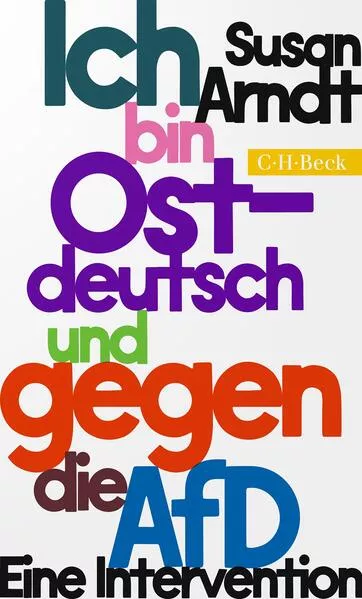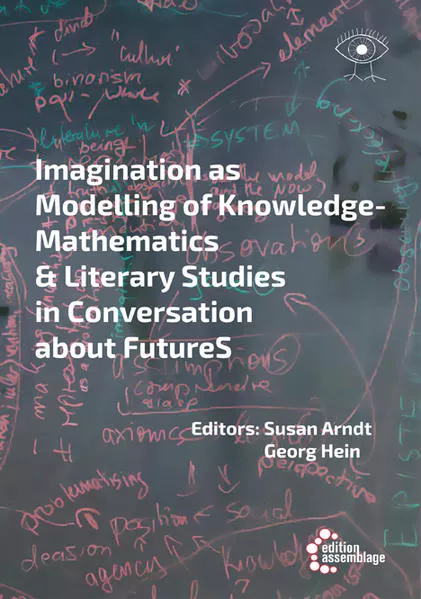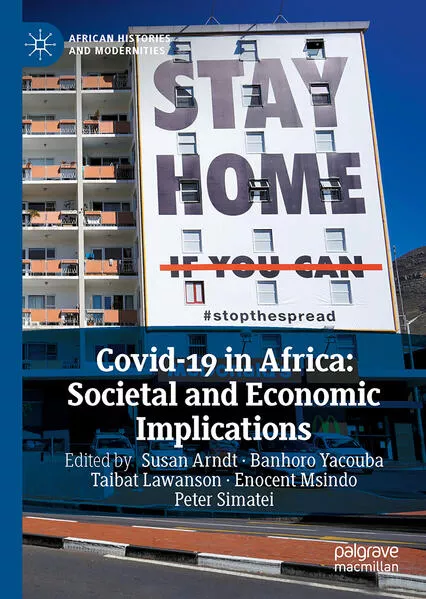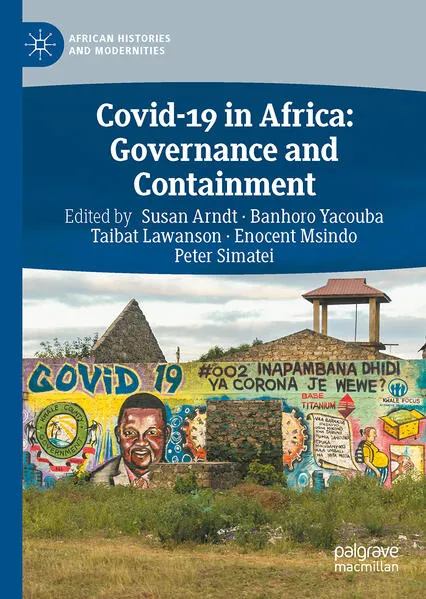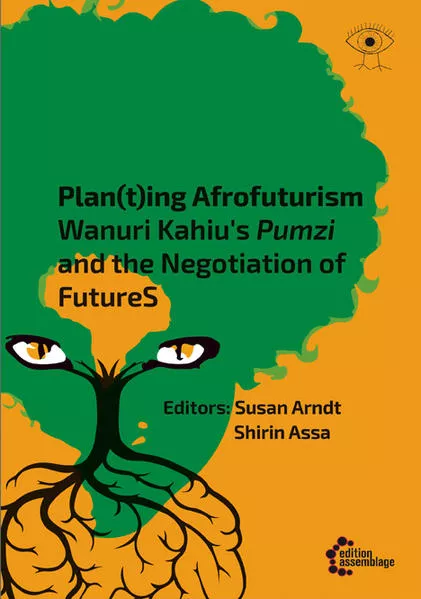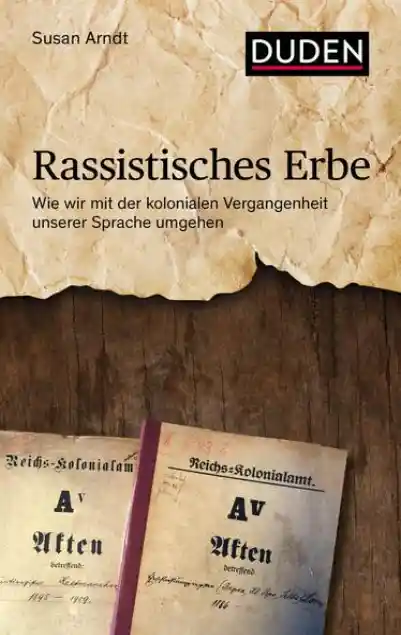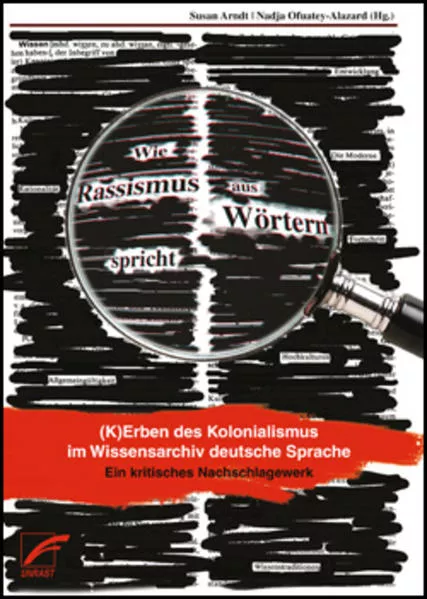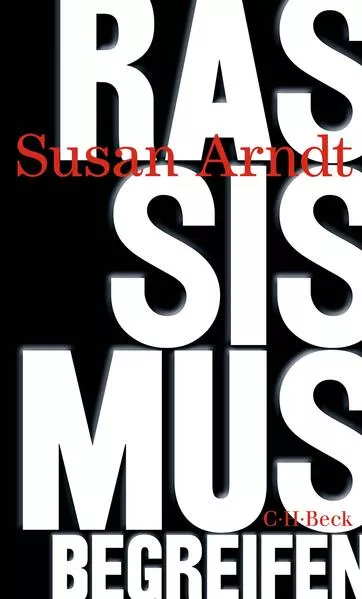
- Publikationen ca: 12
- Buchbewertungen ca: 51
- Fragen & Antworten
Susan Arndt
Susan Arndt lehrt Englische Literaturwissenschaft und Anglophone Literaturen an der Universität Bayreuth.
Ich bin ostdeutsch und gegen die AfD
SUSAN ARNDT ÜBER IHREN OSTDEUTSCHEN WEG VOR UND NACH 1990 Die AfD ist in Ostdeutschland auf dem Vormarsch. In Umfragen ist sie oftmals die stärkste Partei, und liegt in einigen Bundesländern gar bei 35 Prozent. Doch das heißt: zwei Drittel der Ostdeutschen wählen nicht AfD.
Ich bin ostdeutsch und gegen die AfD
Die AfD ist in Ostdeutschland auf dem Vormarsch. In Umfragen ist sie oftmals die stärkste Partei, und liegt in einigen Bundesländern gar bei 35 Prozent. Doch das heißt: zwei Drittel der Ostdeutschen wählen nicht AfD. Susan Arndt gibt dieser oft übersehenen Mehrheit in ihrem sehr persönlichen Buch eine Stimme und zeigt, dass es auch ein anderes Ostdeutschland gibt und die AfD ein gesamtdeutsches Problem ist.
Imagination as Modelling of Knowledge
Mathematik und Literaturwissenschaft im Dialog? Genau darin übt sich der vorliegende Band. Er zeigt, dass beide Disziplinen miteinander reden, weil sie es können; und sie können es, weil sie sich verschieden und doch ähnlich an dem orientieren, was die Welt im Innersten zusammenhält.
Covid-19 in Africa: Societal and Economic Implications
Written amidst the ongoing Covid-19 pandemic, this edited volume draws on the expertise of social scientists and humanities scholars to understand the many ramifications of Covid-19 on societies, politics, and the economies of Africa. The contributors examine measures, communicative practices, and experiences that have guided the (inter)action of governments, societies, and citizens in this unpredictable moment.
Covid-19 in Africa: Societal and Economic Implications
Written amidst the ongoing Covid-19 pandemic, this edited volume draws on the expertise of social scientists and humanities scholars to understand the many ramifications of Covid-19 on societies, politics, and the economies of Africa. The contributors examine measures, communicative practices, and experiences that have guided the (inter)action of governments, societies, and citizens in this unpredictable moment.
Covid-19 in Africa
Written amidst the ongoing Covid-19 pandemic, this edited volume draws on the expertise of social scientists and humanities scholars to understand the several ramifications of Covid-19 in societies, politics, and the economies of Africa. The contributors examine measures, communicative practices, and experiences that have guided the (inter)action of governments, societies and citizens in this unpredictable moment.
Covid-19 in Africa
Written amidst the ongoing Covid-19 pandemic, this edited volume draws on the expertise of social scientists and humanities scholars to understand the several ramifications of Covid-19 in societies, politics, and the economies of Africa. The contributors examine measures, communicative practices, and experiences that have guided the (inter)action of governments, societies and citizens in this unpredictable moment.
Plan(t)ing Afrofuturism
Wanuri Kahiu’s "Pumzi" is an Afrofuturist movie, addressing the consequences of climate change and subsequent wars. "Pumzi" disturbs to dream, turning memory into the elixier of future. This volume is dedicated to learning from Pumzi and its protagonist Asha.
Rassistisches Erbe
Bei der aufgeheizten politischen Debatte um sprachliche Grenzen und diskriminierende Wortverwendungen, stellt sich die Frage, welche Wörter man benutzen darf. Wo liegen beispielsweise die Unterschiede zwischen »Farbiger« und »Person of Color«? Dieses Buch erläutert, wieso das N-Wort aus der Sprache verschwindet, und hinterfragt kritisch, welche vergangenen Denkmuster in Wörtern wie »Naturvolk«, »Eingeborene« und »Tropenmedizin« stecken.
Rassistisches Erbe
Bei der aufgeheizten politischen Debatte um sprachliche Grenzen und diskriminierende Wortverwendungen, stellt sich die Frage, welche Wörter man benutzen darf. Wo liegen beispielsweise die Unterschiede zwischen "Farbiger" und "Person of Color"? Wie problematisch ist das Wort "entdecken"? Dieses Buch liefert erstaunliche Begriffsgeschichten und erläutert, wie manche Wörter der deutschen Sprache an überkommenes Denken aus der Kolonialzeit anknüpfen.
Wie Rassismus aus Wörtern spricht
Das erkenntnisleitende Ziel von "Wie Rassismus aus Wörtern spricht" besteht darin, herauszuarbeiten, wie weiße Europäer*innen kolonialistisches und rassistisches Denken erschaffen und es in Wissensarchiven und ihren Begriffen konserviert haben, durch welche es bis heute wirkmächtig ist.
Rassismus begreifen
DAS NEUE KOMPENDIUM DES ANTI-RASSISMUS Rassismus ist eine der größten Katastrophen der Menschheitsgeschichte. Er wirkt bis in kleinste Zusammenhänge globaler und lokaler Strukturen hinein und zwar als Ergebnis seiner viel zu langen Geschichte. In ihrem aufrüttelnden Buch analysiert und problematisiert Susan Arndt diese Machtstrukturen von ihren Anfängen bis in unsere Gegenwart und zeigt, wie wir über Rassismus reden können, ohne ihn zu reproduzieren.
